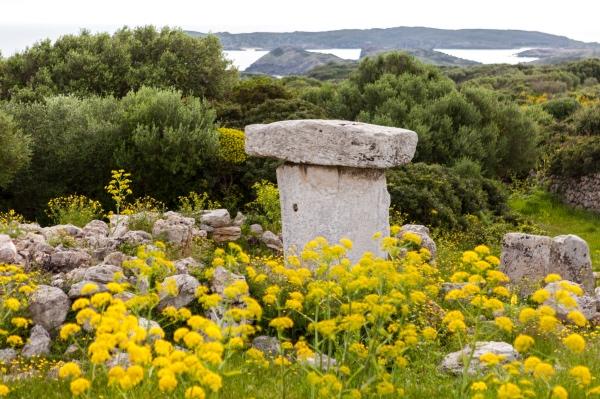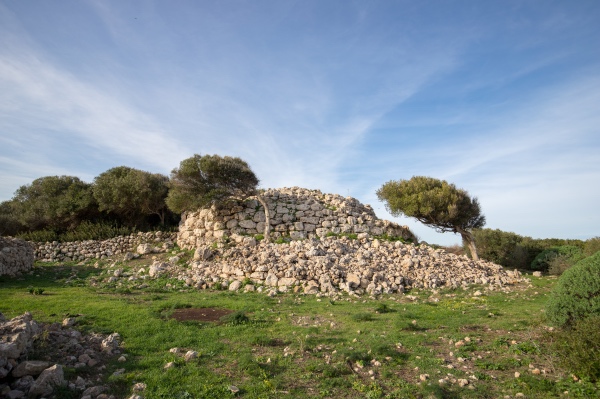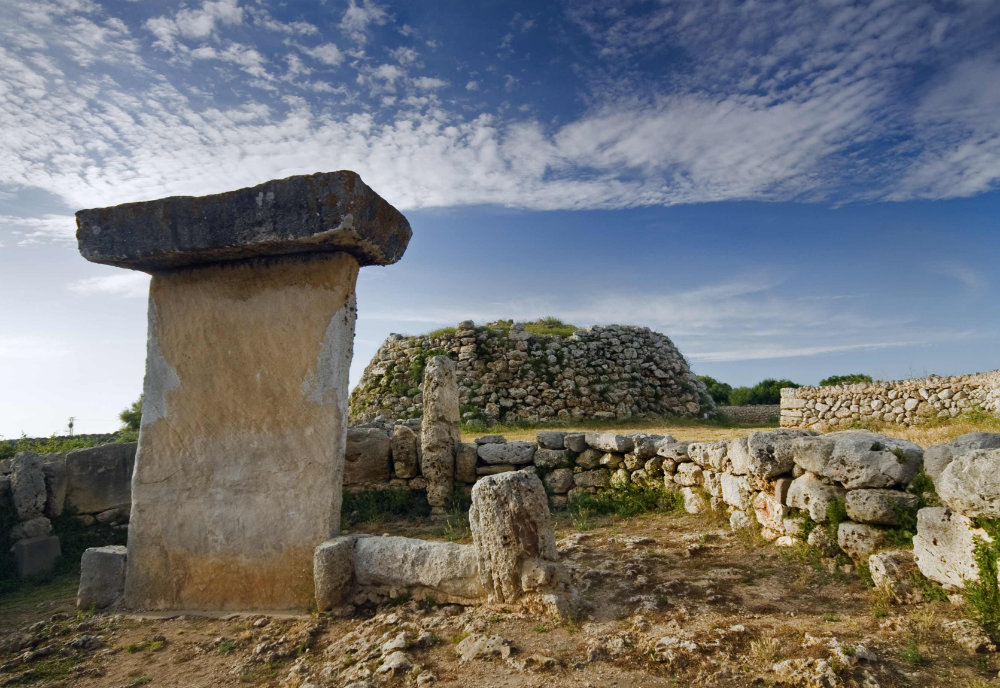
The serial property is located on the island of Menorca, the northernmost of the Balearic Islands, in the Western Mediterranean. The island’s 702 km2 is home to one of the highest concentrations of prehistoric archaeological sites in an inhabited area in the world.
The nine component parts of the property contain the finest works of a a culture that evolved in insular conditions and bear outstanding testimony to human endeavour in prehistoric times on small islands trapped between the sky and the sea. As a whole, they clearly illustrate a unique cultural process that diverged from the path taken by cultures on the other Balearic Islands and across the Mediterranean; a process that happened over a long period of time and through successive phases, and which gave rise to a distinct culture that has come to be known as the “Talayotic Culture of Menorca”.
Talayotic Menorca is also the name by which the island’s population today proudly identifies the ensemble of monuments and sites of its prehistory. It is a term based on the perception of Menorcans towards the large number of talayots or cyclopean towers scattered throughout the island.
 “The odyssey of an island culture trapped between the sea and the sky”
“The odyssey of an island culture trapped between the sea and the sky”
The archaeological remains attest to innovation and skill of Menorcan societies in shaping the influences of the outside world while always retaining the distinctive features of their deep-rooted island identity. Talayotic Menorca thus embodies the cultural character of the island that was forged during prehistory in a small territory far from the main sea routes of the Mediterranean. It is an outstanding example of the odyssey of the ancient island cultures that evolved with their backs turned to outside influences over long periods of time.
The many prehistoric sites, the wide range of cyclopean building typologies represented in the inscribed property, and the relics of material culture are outstanding testimony to the genesis and evolution of a process of cultural divergence on this circumscribed island territory, a period that stretched from the Middle Bronze Age to the demise of the island culture under Roman occupation. Even after the Roman conquest, many of the settlements continued to be used until the Islamic period; and the monuments have been preserved and respected throughout the centuries.
The property possesses a remarkable and representative collection of prehistoric monuments and sites, including settlements, burial spaces, sanctuaries, and sacred places that have survived beyond their time in a good state of conservation. Notable among them are certain outstanding buildings that are unique and exclusive to Menorca, such as the burial navetas, taula sanctuaries, and monumental circular houses, as well as the talayots, symbols of Menorca’s prehistoric heritage. These spectacular structures bear witness to the colossal efforts made by the island’s communities in a small territory with few resources. They are the expression of a powerful, imaginative and original tradition that attests to the collective capacity of islanders to produce outstanding cyclopean structures, unique in their kind and in symbiosis with their environment.
Talayotic Menorca also bears exceptional testimony to a prehistoric island culture associated with the sky. Certain monuments illustrate the intense relationship that this culture had with the skyscape. Such is the case of the burial navetas and the taulas, which exhibit unique orientation patterns that distinguish them from other contemporaneous cultures with similar traits.
 "The spirit of island life that was forged in pre-historic times on small islands away from the main Mediterranean routes"
"The spirit of island life that was forged in pre-historic times on small islands away from the main Mediterranean routes"
The many prehistoric monuments of the property have coexisted harmoniously with all the historical milestones of the island and its inhabitants, revealing a past that has continued to be alive in all the moments that have shaped the island’s history. These vestiges of prehistory have persisted throughout time and have endured alongside the island-dwellers across the ages, indelibly marking the landscape for the last three thousand years.
They are the cornerstone elements that monumentalise the territory of the property. The monuments and archaeological sites of the property are today embedded in a well-preserved Mediterranean landscape mosaic that retains many similarities with prehistoric times. The rich landscape mosaic that surrounds the monumental structures of the past bears all the marks of its distinctive, inherited Menorcan agroecosystem. From prehistoric times to the present, it has retained its extraordinary capacity for resilience by upholding ancestral traditions.
It is a unique landscape that also demonstrates the remarkable persistence of successive stoneworking traditions, which in historical times have yielded exceptional structures such as the dry stone walls that surround the attributes of the property and preserve its spirit of place.
It follows, therefore, that Talayotic Menorca today is an outstanding example of a living archaeological and monumental territory, in which an extraordinary diversity and concentration of prehistoric sites is coherently integrated into a unique context. This allows for a detailed understanding of the relationship between that culture and its environment, the visual connections and system of spatial organisation.
Against this backdrop, the components and attributes of the property powerfully convey the spirit and character of those prehistoric communities and the persistence over time of their works. Their vision of the island, their world, is a legacy of outstanding value for generations both present and future. The property, and by extension, the entire island, thus represents one of the most important areas for studying prehistoric civilisations in Europe and in the Mediterranean.